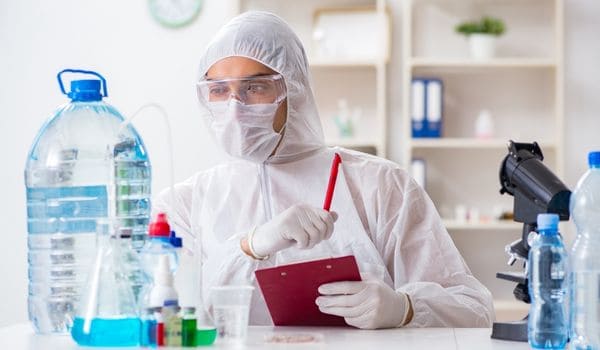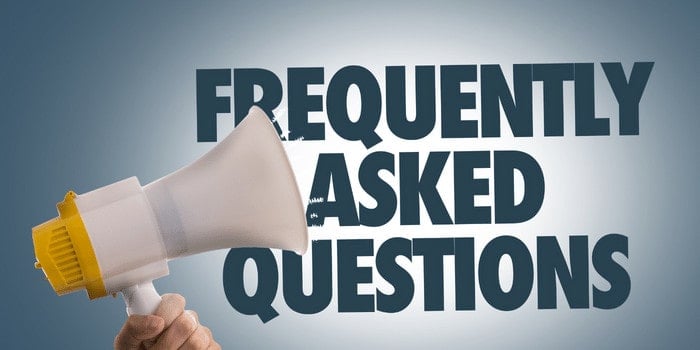Whether it’s a busted main, a water treatment hiccup, or a big storm, you’ve probably heard the phrase “boil water notice” tossed around in the news. But what does it actually mean for your tap — and your health?
Here’s what you need to know when your local water supply is under the microscope — and why boiling your water isn’t just grandma’s advice.
🔑 Key Takeaways
- 🔥 A boil water notice is issued when your tap water may be contaminated and isn’t safe to drink without boiling.
- ⚠️ It’s usually tied to events like pipe breaks, floods, or water treatment failures — situations where bacteria or parasites could slip through.
- 💧 Boil your water for at least one full minute before using it for drinking, cooking, brushing teeth, or washing baby bottles.
- 🐶 Don’t forget pets — they need boiled or bottled water too during an advisory.
- 🚫 A home filter isn’t enough — most can’t kill bacteria or viruses unless it includes a UV or reverse osmosis system (and even then, you should still boil unless advised otherwise).
💡 Helpful Resources
Whether you’re on city water or a private well, it’s important to follow safety guidance during a boil water notice. For official recommendations, check out these trusted sources:
🔍 Advisory vs. Notice — What’s the Real Difference?

These two terms sound similar, but they mean slightly different things — and how you respond depends on which one you’re dealing with.
- A precautionary advisory is issued when there might be a problem — like after a water main break or planned maintenance. It’s a heads-up to boil your water just in case, even if no contaminants have been confirmed yet.
- A mandatory notice This means the water system has been compromised and their testing suggests it could pose a health risk. At this point, boiling your water isn’t just a suggestion — it’s essential until officials confirm it’s safe.
💡 Pro Tip: Both situations require boiling water for drinking, cooking, brushing teeth, and prepping food — even if the risk is only precautionary. If you’re unsure which alert is in effect, check with your city’s health department or local water utility.
🚰 What Should You Do If There’s a Water Alert?

When you hear there’s an issue with your local water supply, don’t panic — but do take it seriously. Whether it’s a full-blown contamination or a “just in case” alert, here’s how to stay safe until the all-clear:
- ✅ Boil your water for at least one full minute before using it for anything you eat or drink — that includes coffee, tea, brushing your teeth, baby formula, or washing fruits and veggies.
- ✅ Toss out any ice made after the alert began — same goes for water from soda fountains, water coolers, or anything that wasn’t boiled.
- ✅ Use bottled or boiled water for pets, too — they’re just as vulnerable to harmful microbes as we are.
- ✅ Don’t forget about baby bottles, animal dishes, or water storage containers — give them a good clean with hot soapy water, rinse, and sanitize.
- ✅ Skip the dishwasher and go disposable if possible. If you must wash dishes, sanitize with boiled water after rinsing.
💡 Pro Tip: Bookmark your local health department’s website or follow them on social media — it’s usually the first place to post real-time updates and let you know when the water’s safe again.
⏳ How Long Does a Water Alert Last?

There’s no one-size-fits-all answer — advisories usually stay in place until the local water system has been tested, flushed, and given the all-clear.
In many cases, that takes just a few days. But if the issue is tied to a major pipe break, natural disaster, or system contamination, it could take a week or longer.
Your local utility or health department will lift the alert once the water is proven safe — and not a moment sooner. So until you hear otherwise, play it safe and keep boiling or using bottled water.
📌 Worth Noting: Even if your water looks or tastes fine, don’t assume it’s safe. Bacteria and other microbes are invisible — and waiting for test results is standard protocol.
🔄 Do You Still Need to Boil Water If You Have a Filter?
If you’ve invested in a home water filter, you might assume you’re in the clear. But during a boil notice, filtration alone isn’t enough — at least not always.
Most standard filters (like carbon or sediment filters) aren’t designed to eliminate bacteria, viruses, or parasites — the very things that boil alerts are issued for.
Even advanced systems like reverse osmosis or UV can vary in effectiveness depending on the model and maintenance. Unless your system is certified to remove microbial contaminants and local officials give the green light, stick to boiling or bottled water for drinking, cooking, brushing teeth — and even prepping baby formula.
💡 Good to Know: Some UV systems may offer partial protection during microbial contamination, but they still rely on clear, low-sediment water to work properly — and even then, boiling is the safer bet when in doubt.
⚠️ What’s a Precautionary Notice?
Not all alerts are created equal. Sometimes, a precautionary boil advisory is issued before contamination is even confirmed — it’s more of a “better safe than sorry” move.
These notices usually follow things like:
- A sudden drop in water pressure
- Pipe repairs or main breaks
- Equipment malfunctions
- Power outages affecting water treatment
In short, anytime the system’s integrity is in question — even without confirmed contamination — your utility may issue a warning just to be safe.
🔍 Heads-Up: These are usually lifted faster than full advisories once the water is tested and cleared.
🧼 What to Do Once the Notice Is Lifted

Once your local health department gives the all-clear, it’s tempting to go back to business as usual. But there are a few cleanup steps you shouldn’t skip.
Here’s how to safely return to normal use:
- 🔁 Flush your plumbing. Run all cold water taps for at least 5 minutes to clear out any lingering contaminants in your pipes.
- 🧴 Sanitize water containers. Wash and disinfect any pitchers, water bottles, or dispensers that may have held unboiled water.
- 🍼 Don’t forget baby items and pet bowls. These should be scrubbed thoroughly or replaced if in doubt.
- ❄️ Toss old ice. Empty the ice maker and clean it out before making a fresh batch.
- ☕ Replace filters. If you used a fridge filter, under-sink unit, or pitcher during the advisory, swap it out — contaminated filters can continue to leach bacteria even after the water is safe.
💡 Helpful to Know: Some cities post official “lifting the advisory” instructions on their websites — check your local public works or utility page for specifics.
✅ What to Do When the Notice Is Lifted
Once your local authorities give the all-clear, there are still a few cleanup steps you shouldn’t skip. Here’s what to do:
- Flush your plumbing: Run all cold taps for at least five minutes to clear out any remaining contaminants.
- Toss old ice: Empty ice makers and discard any cubes made during the advisory.
- Clean your appliances: Rinse out water dispensers, refrigerator lines, and coffee makers.
- Sanitize containers: Wash and disinfect any water pitchers, baby bottles, or pet bowls that may have been filled during the boil notice.
- Replace water filters: If you use a filter (especially a fridge or pitcher style), swap it out — they may trap contaminants and reintroduce them to clean water.
💡 Helpful to know: Some manufacturers recommend running one full cycle of your dishwasher or washing machine empty, just to flush out any residual bacteria or minerals.
🔁 Still Wondering? Here Are Quick Answers

Yes — most home filters aren’t designed to remove bacteria or viruses. Even if you use a carbon filter or pitcher, you still need to boil your water unless you have a certified UV system and your local health department gives the all-clear.
Flush your plumbing by running taps for a few minutes. Don’t forget to sanitize ice makers, water dispensers, and refillable containers — anything that held unboiled water should be cleaned before use.
Nope — just like humans, pets can get sick from contaminated water. Give them boiled (then cooled) or bottled water until your supply is confirmed safe.
For brushing, always use boiled or bottled water — not tap. For dishwashing, use disposable items or sanitize with boiled water after washing. Automatic dishwashers with a sanitizing cycle are generally safe.
Store in a clean, covered container and use within one week. Keep it in a cool spot, and label it with the date it was boiled.
🧠 Final Thoughts
Boil water notices can feel like a hassle — but they’re issued to keep you and your family safe. Whether it’s a precaution after a pipe break or a full-blown contamination event, these alerts are a sign your local water system is doing its job.
✅ The key takeaway? Stay informed, follow the recommendations, and don’t cut corners when it comes to drinking, cooking, or cleaning. A little extra caution now can help you avoid bigger issues later.
And once the notice is lifted? Flush things out, swap those filters, and get back to your usual routine — hopefully with a bit more confidence in how to handle the next one (just in case).
💡 Still unsure about your water quality — even without a current advisory? Consider getting your water tested to find out exactly what’s coming out of your tap.
 137 people found this helpful. Was this guide helpful to you?
137 people found this helpful. Was this guide helpful to you? 

